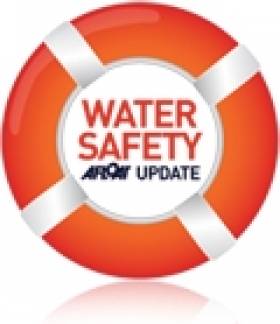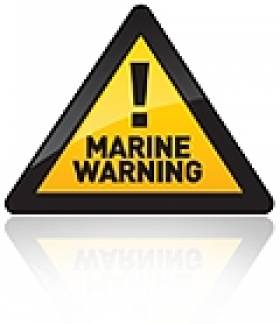Displaying items by tag: Jedward
Jedward Trapped By Tide On North Dublin Beach
#WaterSafety - Pop twins Jedward have urged their fans to stay safe near the water after they got themselves into a spot of bother trapped by the tide on a sandbank in North Co Dublin last night.
As the Irish Times reports, the brothers - John and Edward Grimes - had gone for a walk on Donabate beach, north of Malahide, with a cousin last night (2 July) when they were stranded by the incoming tide and became disoriented in the fading light.
The twins' mother, who spoke to them by mobile phone, raised the alarm with the Irish Coast Guard, who launched the Skerries coastguard team and the Dublin rescue helicopter to the scene.
The Irish Times has more on the story HERE.
Jedward Backs IWS Safety Message
Jedward is backing Irish Water Safety's mid-summer reminder to the public that with many weeks of warm weather yet to enjoy, everyone can have great fun and do so safely by heeding the following swimming safety tips.
Known for their distinctive blonde quiffs and playful performances, the identical twins singing duo, John and Edward Grimes, performing under the name Jedward have a serious message to fans and parents alike - "Swim at Lifeguarded Waterways this summer - they're all listed on www.iws.ie!

Jedward's Top Tips for Safe Swimming:
1. Swim with others, not alone.
2. Swim parallel and close to the shore within your depth.
3. Never use inflatable toys in open water.
4. Never swim out after anything drifting
5. Pay attention to signs on the beach
6. Never swim in the dark or late at night.
7. Swim in familiar places, avoid strange places.
8. Avoid staying in the water too long
9. Never swim out to sea
10. Do what the lifeguard tells you
11. Don't be a bully
12. Digest food before swimming.
13. Wait a while before swimming if you're hot or tired.
14. Learn to use equipment before trying it out.
15. Learn resuscitation skills.
Use days of inclement weather that keep children indoors as an ideal opportunity for them to learn all about staying safe on Irish Water Safety's website for children, www.aquaattack.ie which is crammed full of games, exercises and advice so that children know how to stay safe in, on and around water.
Water-safety advice that will safe life:
The following rules of water safety may seem familiar, however people often take them for granted and run the risk of tragedy:
- Wear a Personal Flotation Device such as a buoyancy aid or lifejacket. Find out what device suits your needs at www.iws.ie.
- Avoid unsupervised areas. Whenever possible, swim in an area that has a lifeguard. Irish Water Safety has details of all lifeguarded waterways nationwide.
- Stay vigilant abroad. The picture-postcard scenes at venues abroad can often mask hidden dangers. Beaches and swimming pools may not be guarded and warning signs may differ. 17 people drowned whilst on holiday abroad last year.
- Learn swimming and lifesaving. Irish Water Safety has swimming and lifesaving classes for children and adults.
- Take lessons when you try a new water sport. Start your lessons, if they're available, before your trip. Be sure you tell a responsible adult, where you plan to go.
- Never go alone. You'll be safer and have more fun if you pair up with another adult for water sports. If one of you gets into trouble, the other can help - and call for additional help if necessary. Always wear a Personal Flotation Device.
- Watch for changing weather. Be prepared to get out of the water and take cover if the skies look threatening.
- Avoid alcohol. Water sports and alcohol don't mix. Tragically, alcohol is often a factor in adult deaths from drowning or injuries incurred in the water. Alcohol impairs judgment, balance and coordination - all essential for swimming and boating well and avoiding hazards in the water.
- Watch children constantly. Children are irresistibly attracted to water. Take the time to protect your children from the dangers of water.
- Lifejackets Checklist
Visually Check all lifejackets and buoyancy aids for the following deficiencies:
Ensure CO2 Cartridges have not been punctured and are secured firmly
Ensure all zips, buckles, fasteners and webbing straps are functioning correctly and adjusted to fit the user, especially the holding down device or crotch strap
Check that their lights, if fitted are operating correctly
Ensure that Automatic Inflation devices if fitted are fully serviced and in date
Check that the valve or lifejacket is not leaking by inflating the lifejacket overnight
Discard any faulty lifejackets by destroying them
- In Marine Emergencies, call 999 or 112 and ask for Marine Rescue.






























































